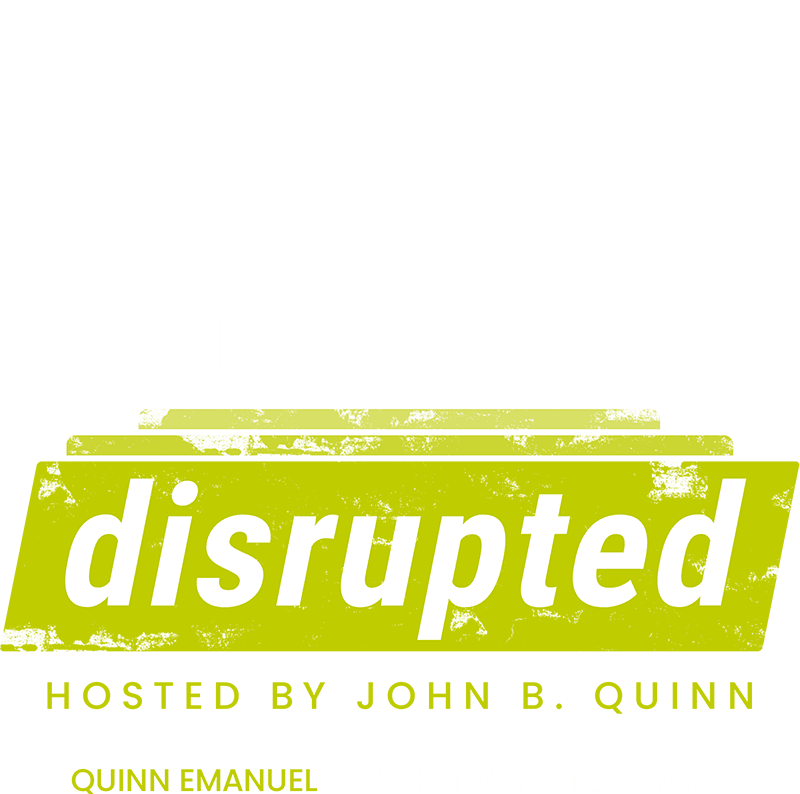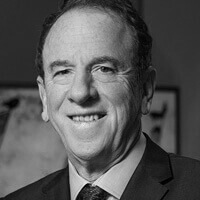Episode description:
In this episode of Law, disrupted, John is joined by John Hueston and Moez Kaba, Co-Founders and Partners at Hueston Hennigan LLP. Chambers has described John Hueston as “one of the top trial attorneys” in the United States and Moez as “a master in the courtroom.” Together they discuss an arbitration in which they obtained both a $175 million plus 5% ongoing royalty (an estimated $50 million annually) award in arbitration – one of the largest U.S. trademark awards ever – and a federal jury trial verdict for more than $271 million (a potential record for a Lanham Act case) for clients Monster Energy and Orange Bang against Vital Pharmaceuticals, Inc. (VPX), the maker of Bang energy drinks.
The conversation begins with John Hueston explaining the background of the dispute. He discusses how for 40 years, Orange Bang had a widely known trademark for the term “Orange Bang” as a beverage. He then explains that VPX licensed the use of the term “Orange Bang” but only in connection with creatine-based beverages in the nutrition market. The discussion turns to the rise of VPX to become the third largest competitor in the energy drink market, thanks to their product, Bang Energy.
The discussion then turns to the issues in play in the arbitration, including how John and Moez had to prove both the licensing agreement’s validity and that the trademark had been infringed. They explain their strategy of making the three-week arbitration about the science creatine and how they used VPX’s own documents and witnesses’ depositions to work in their favor. They also explained how they boxed in VPX’s CEO into questioning the ingredients of his own energy drink. Moez and John discuss how they proved trademark infringement using survey evidence, historical admissions, and strong equitable stories, including how VPX signed the licensing agreement knowing confusion would ensue. They explain why they decided to take a conservative approach to monetary damages rather than asking for more than $1 billion, which expert analysis could have supported. This approach resulted in an award of $175 million plus 5% royalties going forward.
John then moves the discussion to the Lanham Act jury trial. Moez begins by noting the nine-month time difference between the arbitration and the federal trial and that Monster had filed its lawsuit in California in 2018 before the arbitration proceedings began. In the lawsuit, Monster alleged that VPX advertised its product as a game-changing beverage, which was “nothing short of a miracle drink that delivers benefits and cures that have evaded scientists for decades.” Monster also alleged that VPX had misappropriated Monster’s trade secrets by hiring Monster employees and telling them to bring Monster’s confidential information over with them and interfered with Monster’s contracts with retailers by removing Monster’s products from shelf space it paid for and putting Bang into that shelf space.
John Hueston and Moez then explain their unique approach to mock jury exercises in which they overweight the other side’s arguments to help develop their approach both before starting discovery and to prepare for the trial. They also discuss the strict time limits the Court placed on the trial and how they were able to present their case involving complex health, science, and legal issues. Moez explains how they developed their themes that VPX was lying to consumers about what they put in their beverages, cheating competitors by taking confidential information and stealing shelf space away from Monster Energy in supermarkets. They discuss how instead of calling VPX’s CEO to the stand first, they targeted high-level executives who could confirm VPX’s false statements first and then sandwich the CEO’s examination between experts who admitted that Monster’s scientific claims were correct.
Finally, the discussion turns to the two critical points of the trial that gave John & Moez the confidence to believe the jury would rule for them: the jury’s reaction to John Hueston’s cross-examination of VPX’s CEO and Moez’s ability to reduce the scientific issues to a level that was understandable and compelling to a working-class jury. Ultimately, the jury awarded Monster more than $271 million on its Lanham Act claim.
Published: Dec 1 2022











